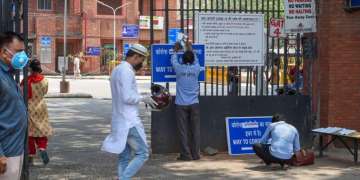The serological survey in Delhi for the month of August has concluded. As per reports, about 15,000 samples were collected from over 11 districts in Delhi. These samples will not be processed in 18 labs authorised by the state government before the declaration of the findings, in about 10 days from now.
In a similar sero survey that took place in the national capital last month, it was found out that 1 in every four Delhiite (23%) had antibodies for COVID-19.
After the results, it was decided that a sero survey will be carried out in Delhi every month to take stock of the situation.
Delhi currently has close to 10,000 active coronavirus cases while the number of people who have recovered has surged past 1.27 lakh.
What is a serological survey?
Serological surveys are often used by epidemiologists to determine the prevalence of a disease in a population. Such surveys are sometimes performed by random, anonymous sampling from samples taken for other medical tests or to assess the prevalence of antibodies of a specific organism or protective titre of antibodies in a population. Serological surveys are usually used to quantify the proportion of people or animals in a population positive for a specific antibody or the titre or concentrations of an antibody.
These surveys are potentially the most direct and informative technique available to infer the dynamics of a population's susceptibility and level of immunity. The authors proposed a World Serology Bank (or serum bank) and foresaw "associated major methodological developments in serological testing, study design, and quantitative analysis, which could drive a step change in our understanding and optimum control of infectious diseases.
Latest India News
